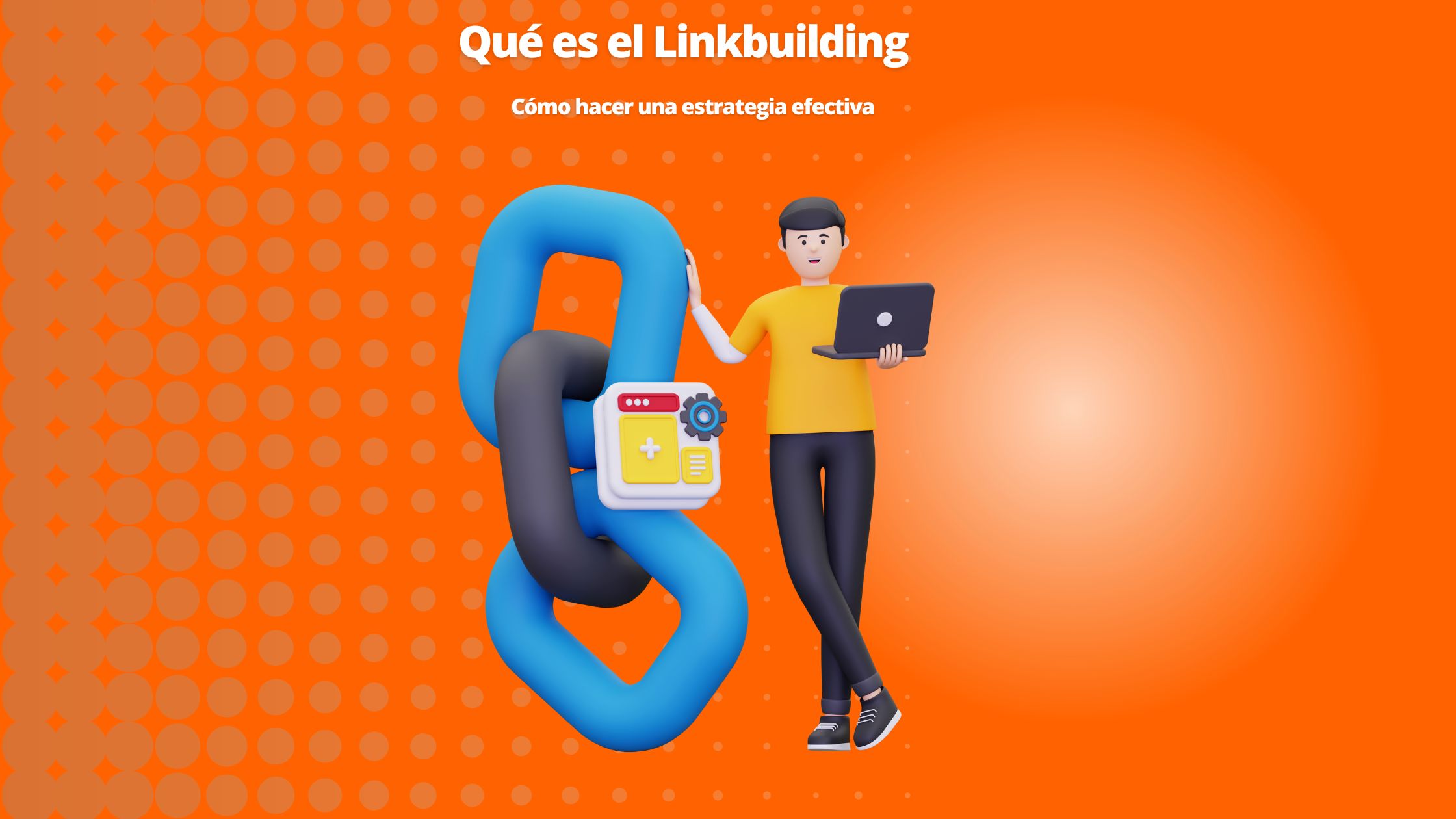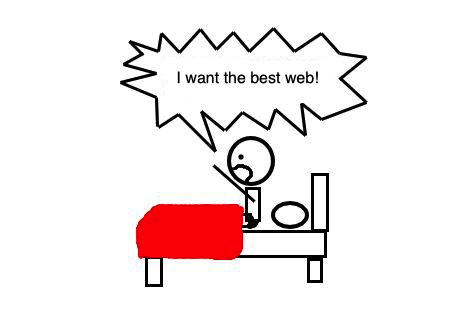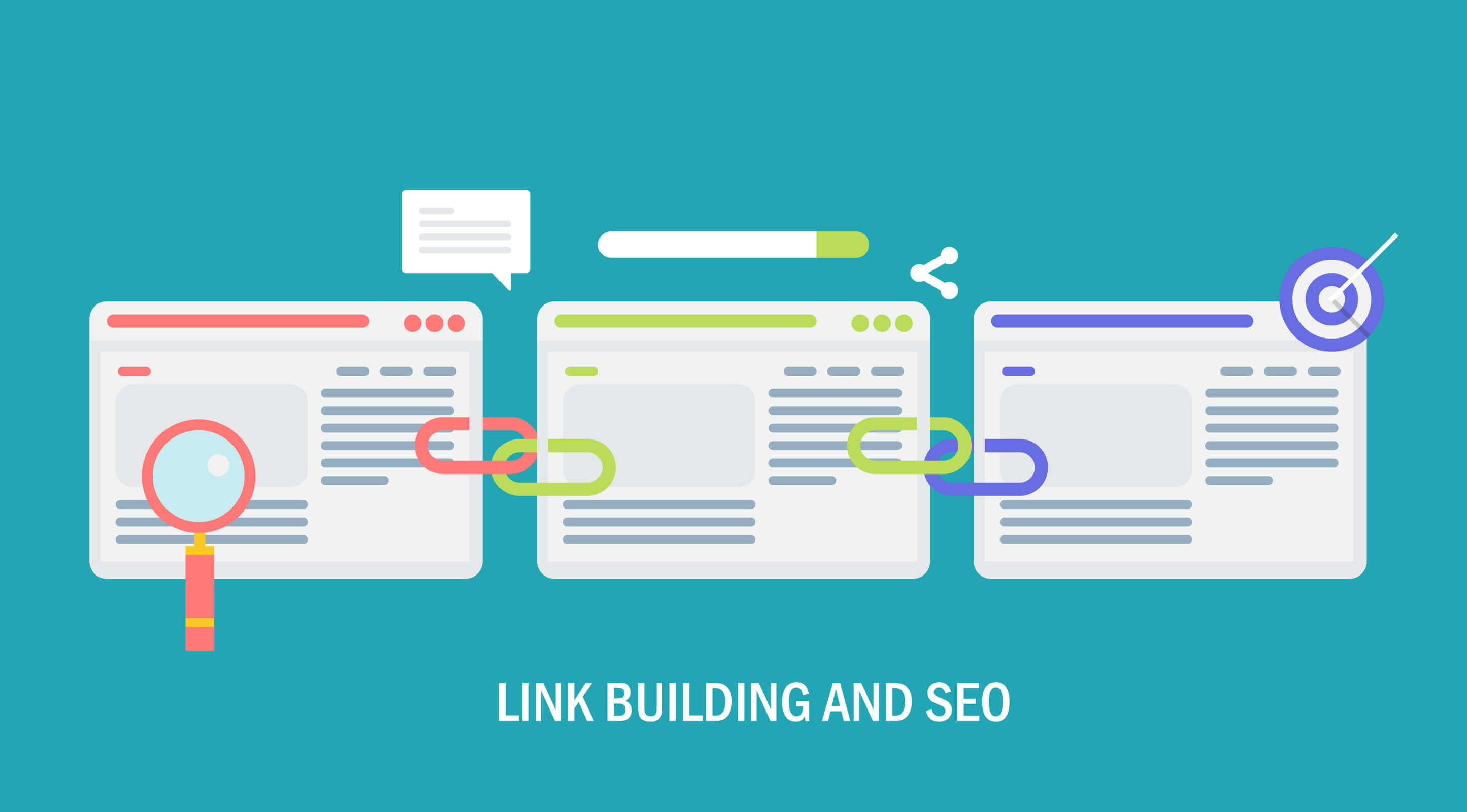Myths & Legends: Link Building

My friend, come here and let me tell you Paco's story. Our protagonist met the world of link building for the first time like many others: looking for how to make his website appear on the first page of Google.
And, as it is a technique that has evolved and depends on secret algorithms, many false beliefs have been formed around it and spread through forums, blogs and word of mouth.
But let's start from the beginning: I introduce you to Paco, random country, unknown age and large family. Does he have anything to do with our history? No, but it's cool.
One day, Paco woke up wanting to have the best web. He had never created a website before and he only knew Facebook, YouTube and pages of dubious reputation on the Internet.

So with a lot of energy he went to the computer and wrote in Google "How to create a web page". He followed all the steps that the tutorial he had found and waited. He waited patiently for the visitors to start coming to his website.
He waited 1 day, 1 week and even 1 month, but the graph of visits was flatter than a football field. So without giving up he went back to Google and typed "How to increase the visits to my website".
He read many articles from different pages and came to a conclusion: he needed to learn how to do link building!
What is Link Building?

Link building is the part of SEO that specializes in getting links from other websites to your site and thus make both search engines and users see that your website exists. A few things to bear in mind:
- We can consider each link from a domain as a vote. Each page send votes for other pages.
- Each Internet domain accumulates authority according to the votes of other pages towards it.
- A page with a lot of authority send more powerful votes to other web pages.
- The more votes a page sends, the less power each vote has.
Well, with these little facts in mind, we can get started!
MythBusters: Link Building Edition
The inner workings of Google are a mystery and, as always, humanity creates its myths and legends about what it does not know in an attempt to explain phenomena that are beyond its comprehension.
Furthermore, over the years, beliefs have been formed that, although in the past were valid, are no longer so today as Google improves, changes and updates its system (the feared Google Updates).
Without further ado, I leave you with the most common myths you can find on the Internet.
First myth: Link Building is dead

We start with a good one. There are many who claim that getting links manually no longer works because Google has done its best to combat manual link building. But I'm sorry to say that, if you're one of those who thinks this, what's dead is your desire to learn.
It's not dead, it's just evolved. What used to work no longer does and this is because Google has sophisticated its search engine and we are the ones who have to adapt.
An example: in other times you could bought a package of 500 links that pointed to your website and suddenly you went from the underworld of result pages to the top. This technique no longer works, now you have to work on it more.
Nowadays, inbound links are one of the most influential positioning factors in Google's rankings and as long as that continues, it won't die.
Second myth: NoFollow links are useless
A big lie. Just think, why were the links created in the first place? So that people would click on them and visit your website!
Don't dismiss a site just because the links are NoFollow. Yes, DoFollow links transfer authority to your website and that helps positioning. But imagine this situation: you have your own website and you are interested in improving your knowledge, so you look for more information on the Internet for your page.
You find an article on a page that talks about a topic you have already talked about on your blog and you realize that there is information missing from the article. You write a polite commentary, providing that extra information that is missing from the article and leave a link in the commentary in case people are interested.
With this simple gesture, you will encourage the users from the competition's page to click and get to know your website.
One last thing, don't leave comments like "Good article, very useful, in this (random) blog [link] I leave you more information about the topic" because it will most likely not even pass through the SPAM filter.
Third myth: a link in a forum is SPAM

Like everything in this life, everything has its shade. If you create a user and leave a message that is only a link, then yes, that is SPAM.
To make a good link building strategy you have to look for a forum related to your website and leave a well-founded message, which provides value to users and always according to the rules of the forum.
The first thing I do is search in the forum for questions made by other users that can be answered with a post in my blog. Can't find it? Wait. Try another day. If it is a very active forum, sooner or later the question you are looking for will appear.
If after a while that particular question does not appear, look for any other question you can answer, create a new post on your blog and answer the user by linking to that new post you have created. Easy, isn't it?
Fourth myth: it's not worth getting a link from a website below a X value of DR or DA
Page metrics are one indicator and one indicator only. You can't underestimate a link because it has a low DR or DA. Not only because any healthy link profile will be full of larger pages and smaller pages but because every link counts as it tells Google that people are talking about you.
Also, keep in mind one thing, it is easier to get a link from a small page than from a large page and if that small page grows, the strength of that link grows as well.
Fifth myth: all links on the same page have the same value

Negative! The position of this link has a great influence on both Google and the user.
A link placed in the sidebar or footer that is replicated on all pages of the domain is more likely to be clicked on by the user, but Google, as it sees it over and over again, will ignored it.
It has also been seen that a link in these parts of the web page transfers less force than those within the content itself.
In the end, one must always seek a balance.
Sixth myth: link building is the most important factor in web positioning
If we focus only on having a good link profile and that our domain acquires authority, we will have a page poor in content and user experience (UX).
There is no point in getting links that will attract traffic from multiple sites and then leave because they can't find what they are looking for, either because the content sucks or because the UX when browsing the page is disastrous.
Keep in mind one thing, if both the content and the user experience are good, it will be the users themselves who will link to you and make a natural link building towards you.
In fact, it is one of the factors that most influence the positioning of a page, but it is not the most important nor does it ensure your success.
Seventh myth: links that are not of the same field will not help positioning

Not entirely a lie. It's true that sites with the same topic are more valuable than one that has nothing to do with it. But related sites have a lot of value, since you can partner with other businesses that are not in direct competition to get links that bring traffic.
And by this I don't mean that you contact all the sites saying "I'll link to you and you'll link to me". Reciprocal links need to be carefully and thoughtfully managed.
When you go looking for a link on a page you have to think if the public of the above mentioned web can be interested in your site. If not, they will either not click on the link or they will enter and leave when they do not find anything of interest.
Conclusion: Link Building is good
What you have to get clear about this is that when you look for information on the Internet about this topic (and SEO in general), check the date of publication of the article, as there is a lot of outdated information that will give you a hard time.
And that's it. Now both you and Paco know which are the most popular link building myths and legends. See you next time!







